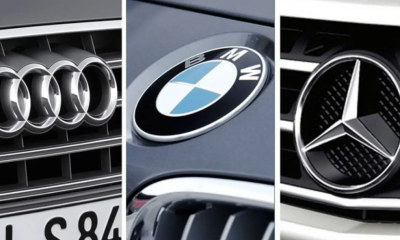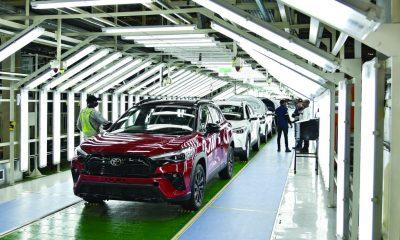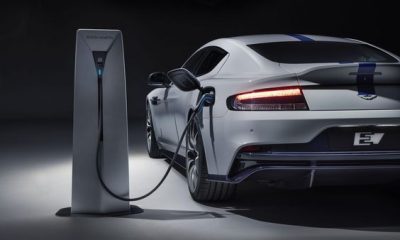Business
South Africa’s Car Prices Under Review as BMW Pushes for Policy Shift

South Africa’s automotive industry is at a turning point as BMW South Africa leads a push to lower car prices through a bold policy change. With the influx of cheaper Chinese vehicles disrupting the local market, automakers are calling on the government to revise its automotive policies to make locally produced cars more competitive.
Automakers Call for Government Support
BMW South Africa’s CEO, Peter van Binsbergen, has revealed a plan that could significantly impact car prices in the country. Local manufacturers intend to request that the government convert billions of rands in unused import duty credits into cash. These credits, earned through high-volume vehicle production, currently help offset duties on imported cars and components.
If approved, this conversion could reduce production costs and, ultimately, lower the retail prices of locally manufactured vehicles, making them more affordable for consumers.
The proposal is expected to be presented to Trade, Industry, and Competition Minister Park Tau as part of discussions on revising South Africa’s automotive policy.
The Impact of Chinese Car Imports
The push for policy change comes as Chinese car brands rapidly gain market share in South Africa. Since 2018, the percentage of locally manufactured vehicles sold in the country has dropped from 46% to 43%. Meanwhile, Indian and Chinese brands have expanded their share from 18% to 37%, a massive jump within just five years.
According to Naamsa, the number of Chinese cars imported into South Africa surged from 11,000 in 2019 to 39,000 in 2023. As of 2024, they account for 21% of all light-vehicle sales.
Leading Chinese brands such as Haval, Chery, Great Wall Motors (GWM), BAIC, and JAC Motors are selling thousands of units each month. Haval and Chery alone sell over 1,500 cars per month, cementing their presence in the local market.
Rising Car Prices and the Need for Change
While Chinese brands continue to offer affordable options, European manufacturers—many of which produce cars locally—are seeing sales stagnate as prices soar.
For example:
- Audi A1: R523,200 in 2024 (18.6% increase from 2021)
- BMW 1 Series: R713,395 in 2024 (29% increase from 2021)
- Mercedes-Benz A-Class: R826,024 in 2024 (41% increase from 2021)
These price hikes far exceed the country’s 20% inflation rate over the same period, making premium local vehicles increasingly unaffordable.
Electric Vehicles and the Future of Local Manufacturing
Beyond price concerns, BMW’s van Binsbergen also emphasized the importance of updating South Africa’s automotive policy to include electric vehicle (EV) manufacturing.
While President Cyril Ramaphosa has expressed support for expanding EV incentives, details remain unclear. Currently, incentives apply only to fully electric vehicles, and there is ongoing debate about whether hybrids should be included. Automakers are also advocating for consumer incentives to boost demand for EVs.
What’s Next for South Africa’s Car Industry?
With local automakers pressing for immediate government action, the coming months will be critical for South Africa’s automotive sector. If BMW South Africa’s proposal is accepted, consumers could see more affordable locally manufactured cars, reducing dependence on imported vehicles and strengthening the local industry.
As discussions continue, car buyers, industry stakeholders, and policymakers will be watching closely to see how this potential policy shift unfolds.
Follow Joburg ETC on Facebook, Twitter , TikTok and Instagram
For more News in Johannesburg, visit joburgetc.com





















